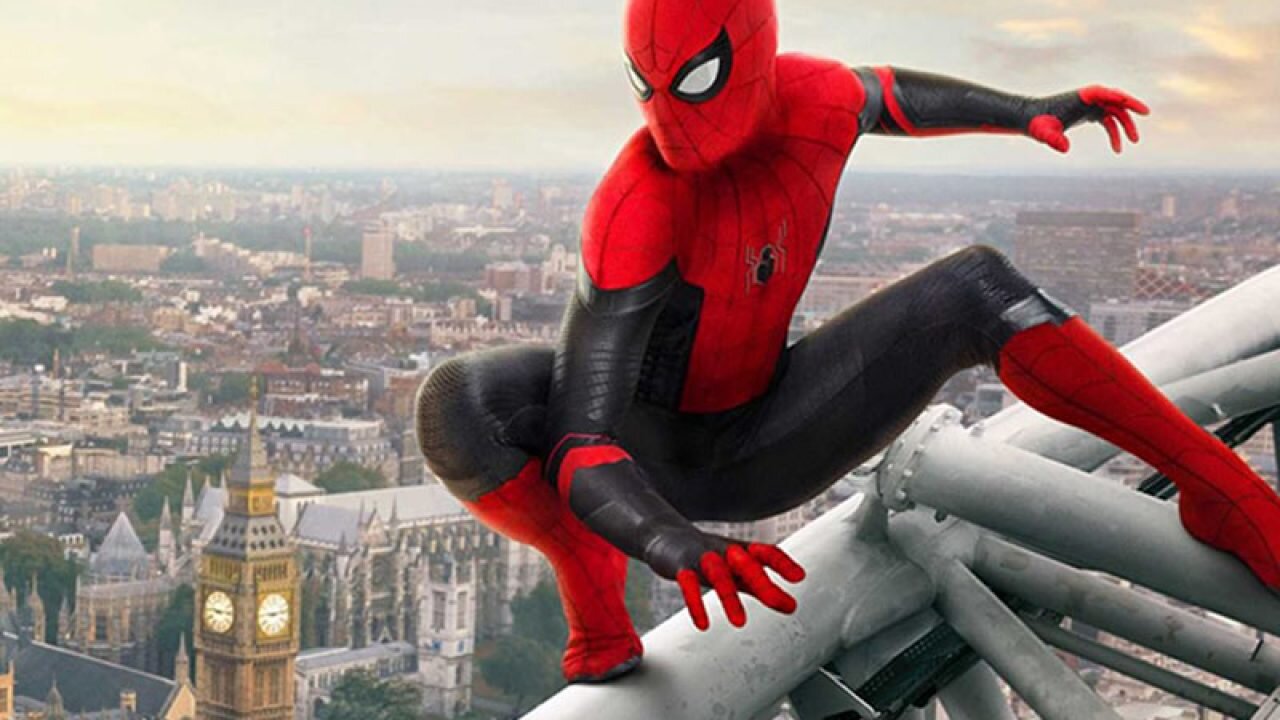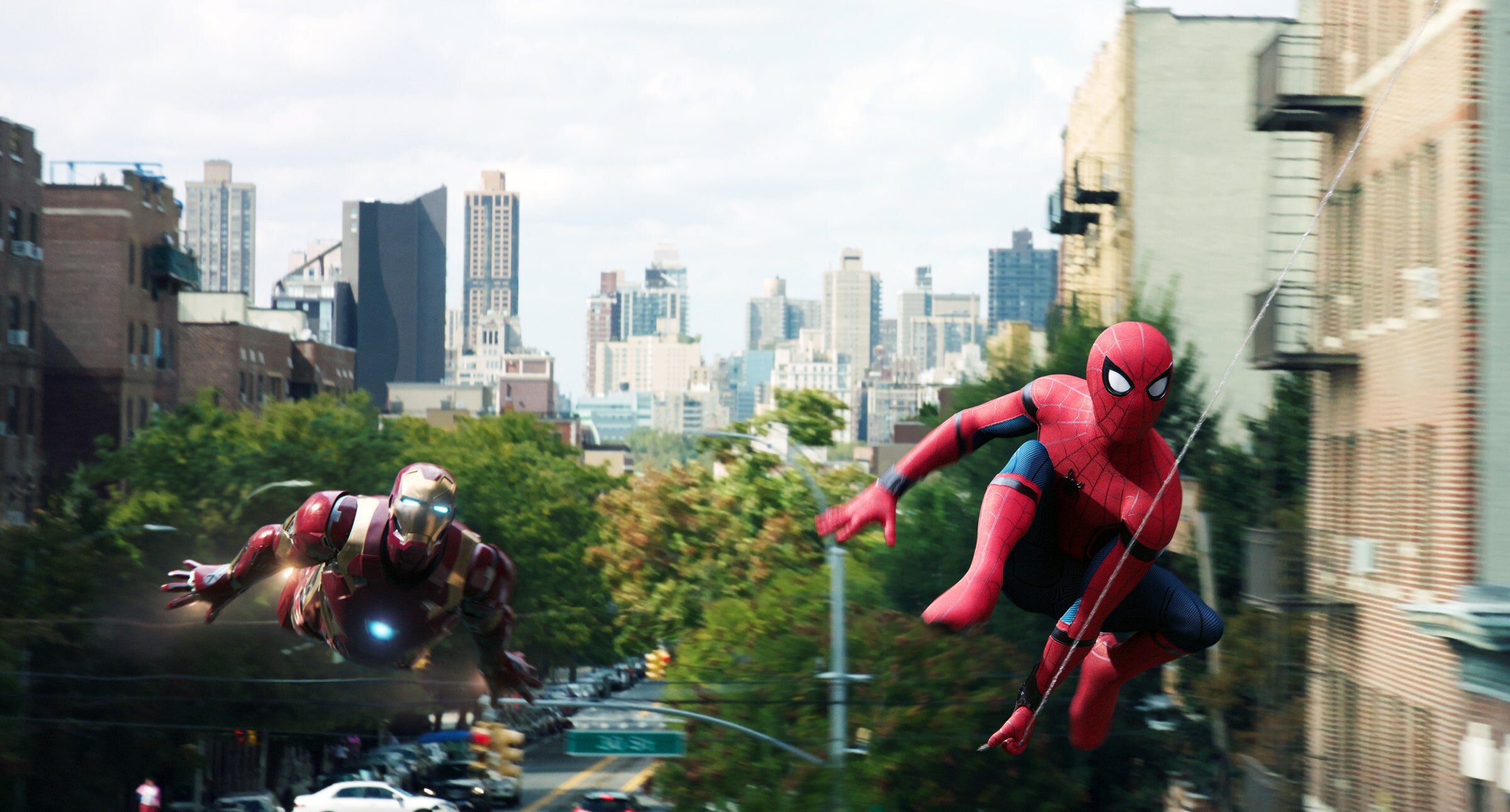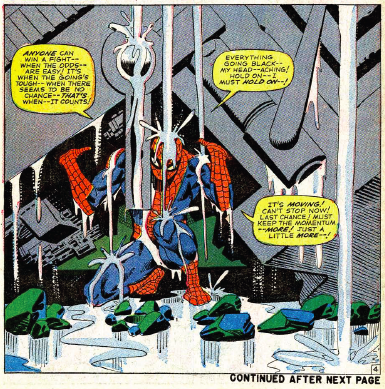What the Hell is Happening With the MCU's Spider-Man?
In the era of COVID, when the only major news about movies is how long they’re getting delayed this time, one franchise has been having an amazing, spectacular couple of weeks. Announcements for the upcoming third installment of the Marvel Cinematic Universe’s “Spider-Man” series have been popping off with consistency, first with the announcement that Jamie Foxx would be returning as Electro from “The Amazing Spider-Man 2” and just today that Benedict Cumberbatch, in his role as the MCU’s Doctor Strange, would be appearing as well. Rumors from earlier this week suggested that that Kirsten Dunst and Dane DeHaan would be reprising roles from respective Spidey franchises. It’s been long rumored but remains unconfirmed that preceding Spider-Men, Tobey Maguire and Andrew Garfield, are in talks to appear in the third “Spider-Man: Home”-something as well.
This all begs the question: what the hell is happening?
Spider-Man’s history on the big screen is, I think it’s fair to say, a mixed bag. The original Sam Raimi trilogy has the nostalgia factor going for it (people even seem to be coming around on "Spider-Man 3" nowadays) but of the three films, "Spider-Man 2" is typically the only one that gets called great. Marc Webb’s “The Amazing Spider-Man" films have their small base of support, but the series as a whole is largely agreed to be a misfire, with “The Amazing Spider-Man 2” regularly finding itself on “worst superhero movies ever” lists. Finally, the MCU’s version of the wall-crawler has been controversial since he first arrived, with Tom Holland’s take on the character regularly criticized for his reliance on Tony Stark and lack of a familiar supporting cast. But you know what’s not controversial: Academy Award winner “Spider-Man: Into the Spiderverse”.
The concept of a crossover between Spider-Men from different universes can be traced back to a two episode arc from the 1990’s “Spider-Man: The Animated Series”, which served as the inspiration for the "Spider-Verse” comic storyline by writer Dan Slott, which ran across several Spider-Man titles. To editorialize a bit, the event is…not very good, and mostly exists so dedicated fans of the web-slinger can catch references to fringe Spider-Man media. The Spiderverse idea was purified into 2019’s “Spider-Man: Into the Spiderverse”, which kept the fun core idea of multiple Spider-Men and sifted out the convoluted nonsense inherent to late stage Marvel comics.
Although Foxx and Cumberbatch are the only confirmed casting at the moment, the fact that one is from an entirely different franchise coupled with rumors of Maguire, Garfield, and others featuring in the next MCU Spider-Man outing all point to a live-action adaptation of Spider-Verse coming in the near (well, maybe if we ask COVID nicely) future.
There are, at present, 850 issues of “The Amazing Spider-Man” comic, and well over a thousand Spidey-centric books when you factor in “Peter Parker: The Spectacular Spider-Man”, “Web of Spider-Man”, “Ultimate Spider-Man”, and probably a handful I’ve forgotten about. This is the world’s worst brag, but I’ve read over half of all the previously mentioned comics, spent my childhood mainlining Spider-Man cartoons directly into my eyeballs, and have wasted a truly shameful amount of time playing Spider-Man video games. Spider-Man is pretty much the sole reason I can’t seriously claim to be anti-consumerism. I don’t even collect Marvel comics any more with the exception of “Amazing Spider-Man”, which I keep on my pull list because at this point I’m basically a junkie. All this to say that, while Spidey’s portrayal on screen has always been touch-and-go, as a massive Spider-Man fan the latest incarnation of the character has been particularly frustrating.
The MCU is seemingly obsessed with giving Peter Parker not just a mentor figure but an all-out daddy, first in the form of Tony Stark, then Nick Fury, and now apparently in Doctor Strange. A daddy who not only guides Peter through the trial and tribulations of becoming a superhero, but also scolds him before ultimately stepping in to solve the problem. But one of Spider-Man’s biggest qualities is that he’s a loner; he’s financially unstable, hides his identity from most of the people in his life, and relies on equipment he jimmied together in his bedroom when he was sixteen years old. Spider-Man is the working man’s hero, he doesn’t have a constant stream of kindly mentors to do his homework for him.
Spider-Man’s origin centers around the loss of his father-figure, his Uncle Ben who has been jettisoned from the current films altogether. In the MCU, Peter’s father-figure (now Iron Man, rather inexplicably) also dies, but does he though? The plot of “Spider-Man: Far From Home” is only possible because of the lasting presence of Tony Stark, from it’s villain, to Spidey’s new suit, to the weird drone-strike glasses he inherits directly from Tony’s face. This vast support network completely cuts the legs out from under the character and replaces his blue-collar charm with hand-me-down white-collar privilege.
It’s so hard to talk about the problems with MCU Spider-Man without delving into all the problems of Marvel itself. True to character, this version of Spider-Man is woven into an intricate web of legal drama and poor production decisions that have gone on to afflict the Marvel Cinematic Universe as a whole. Tony Stark is only in “Spider-Man: Homecoming” because of Marvel’s insistence that literally everything be connected, a habit that, so far, hasn’t shaken out very well in Spider-Man’s favor.
The following is conjecture, but hear me out. Knowing all of the back and forth that’s gone on between Disney and Sony, who currently share the film rights to the web-head, I feel confident in saying that Marvel didn’t have a plan for this character and aren’t confident about his future at the company. The split rights issue has thrown a massive wrench in the entire franchise; Spider-Man mainstays like Mary Jane, Harry Osborn, and Gwen Stacy have been replaced by thin proxy characters all out of fear that Sony will snatch the film rights back once Marvel has laid the ground work. Another reason why Spider-Man in particular is so heavily tied to other Marvel characters is to make Tom Holland’s portrayal inextricable from the MCU, again for fear that Sony could take the ball and go home, which they’ve already tried to do.
With the intentions now clear of tying all three Spider-Man franchises together, Marvel and Sony seemed to have reached the understanding that they have to work with each other, but also realized that there’s no financial punishment for failing to compromise. Marvel Studios has Spider-Man purely out of Sony’s good will, Sony is happy to exploit this one chance to have Disney over a barrel. “Into the Spider-Verse” was highly acclaimed and widely popular, why not just do that again, but in live action? Is there really a massive fan outcry to have Tobey Maguire come back as Spider-Man? No. A cameo would be cute and certainly welcome, but half the audience for this movie wasn’t even born when the Raimi films were in theaters. Again, conjecture, but it looks an awful lot like Sony is forcing its toys into Marvel Studios' hands so they can have a solid foundation built once Spider-Man’s rights revert fully to them.
This is not the first instance of Sony making their intentions clear; Michael Keaton will be reprising his role as the Vulture in Sony’s upcoming film “Morbius”, based off the perennial Spider-Man villain of the same name. And I know how excited well all are for that.
None of this is fair to poor Spider-Man. The constant crossovers, universe-saving battles, and now multiverse hopping drains him of the small-scale, working man, struggling to pay rent appeal that has always lied at the heart of the character. It’s sad to see Marvel Studios bounce it off the backboard so hard with their most beloved character, and with Disney’s domination of the marketplace and the MCU version of these characters so heavily cemented in pop culture, it’s likely we’ll be stuck with this interpretation for years to come. The solution? I honestly don’t know, it would take nearly a complete overhaul of the franchise to get Peter looking like his old self again. What’s worse is the Marvel has shown, at times, that they have a grasp on Spidey’s character, most notably the “If This Be My Destiny” moment from the climax of “Spider-Man: Homecoming”. I guess, if I had things my way, I’d hope for Miles Morales to make his appearance in the MCU and start things from the ground up.



